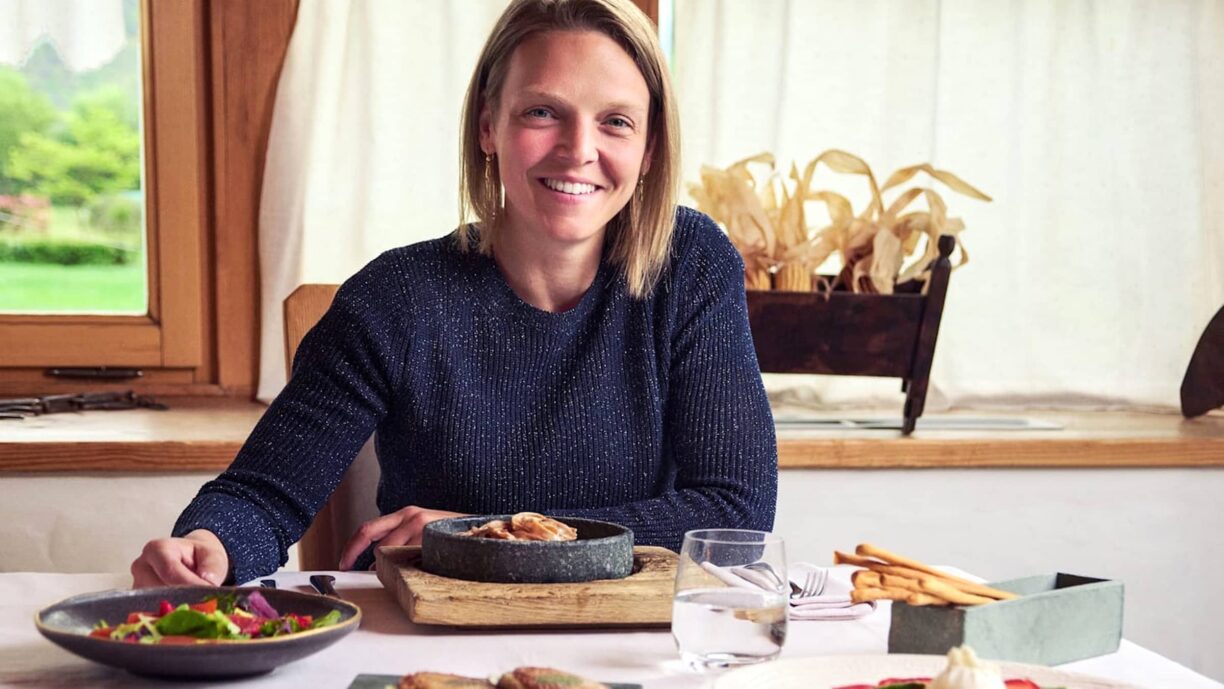Last winter was tough going – and if the mere idea of facing it all again is filling you with dread, you’re not alone.
Just a glance at this week’s headlines feels daunting, with Covid cases rising and experts warning more action is needed to avoid another ‘winter crisis’.
Worried how you might cope this time around? Anxious about being anxious again? We hear you – so we tapped up some of our favourite psychologists and therapists for their expert insight, and advice that’s actually helpful…
Worrying about being worried is a thing
We often tell ourselves there’s no point worrying about things that haven’t happened yet. That’s sort of true, of course – but it’s also true that humans do experience worry, and just denying it probably isn’t helpful.

Our brains are wired to anticipate threat, and if you’ve been through a period where things were mentally difficult, it’s very natural to worry about it happening again (as anyone with experience of panic attacks will know).
“We call it ‘anticipatory anxiety’,” explains Dr. Meg Arroll, a chartered psychologist working with Healthspan. “Without a doubt, our cognitions, our thoughts, maintain our sense of anxiety and our stress response.”
We know how hard it is now
As senior therapist Sally Baker (workingonthebody.com) points out, we also know now that living through a pandemic really isn’t easy. “When it all kicked off, it was called ‘unprecedented’ because we’d never had this experience before. That was a whole different mindset and there was a lot of virtue signalling – a lot of saying, ‘Oh, well now I’ve got all this extra time, I’m going to be doing yoga, doing my storyboarding and my journaling’ and all that rubbish. And then the grind drilled down, and it was just awful.
“So now we understand what we’re in for, and we are carrying with us the trauma of the previous [winter].”
“We kind of went into a low mood last time,” she adds, “but now we’re already there, and lots of people never got out of the last one because it was so debilitating and so impactful on their lives.”
The power of keeping it real
Wondering how on earth this is helpful? Here’s the thing – we are not designed to be endless beacons of positivity.
And trying too hard to be that, and pushing that onto others, rather than just being a compassionate listener, is often just a short-term ‘bandage’ and may prevent us from really moving through these emotional challenges.
“We have to treat ourselves like ninjas in training!” says Baker. “And it’s not about being ultra-positive because that’s where we dip into toxic positivity, and toxic positivity doesn’t serve us because it denies our authentic feelings.
It’s about having a realistic appraisal of the situation, and as a ninja in training, we need to do all the things we can do to help us.”
What things help you cope?
Arroll uses something psychologists call an ‘insight model’, “where we focus on what resources we have,” she explains.
“So, asking patients to reflect and look back at what helped you last time. We’ve had a few lockdowns now and we have experience of coping. Helping people bring to mind their experience of coping is incredibly important.”
It’s not about ‘snapping out of it’. This stuff is hard. But you will have lots of resources and tools you can draw on that have helped in the past.
“What we do in the clinic is coping based imagery. Rather than projecting a picture-perfect future, projecting yourself in a difficult situation but seeing yourself cope with that,” explains Arroll. “Those are the types of things that will really help people through.”
This gives us space to acknowledge life can be hard sometimes, and we may get anxious and fearful. But then shifts focus onto the things we can control while reminding ourselves that day-to-day actions do matter.
“And those are things like creating opportunities for dopamine and serotonin releases – the good hormones for our brains,” says Baker.
“Find a way every day to support your mental health, with a download of feel-good stuff.”
Do the things that fit best for you. Moving your body somehow or other is obviously top of the list. Baker says tapping into some forest bathing is great if you can – but this doesn’t have to mean paying for a fancy retreat, just get out in local woodlands or parks.
“Do it for 20 minutes, because it takes 20 minutes for the serotonin and dopamine to be released.
Singing is also great, you can do that in the shower. You can do your kitchen discos,” adds Baker.
“Think back to what lifted your spirits last time because we did a lot of learning. We tried a lot of things – not all of them worked – but we will have some touchstones we can go back to.”
Be conscious of what you’re consuming
The basics – like wholesome, nutritious food, getting plenty of quality sleep and avoiding too much alcohol (which dents our REM sleep, notes Baker, which is when our brains “process your daytime anxiety”) – really can’t be overlooked.
These things support us from the inside out and also help with hormone and energy regulation and just providing a more solid foundation for ourselves when our emotions feel frayed.
But what we consume during times of heightened stress and anxiety extends to our TV and phone habits too. “Try to break the doom-scrolling habit – it’s so addictive,” says Arroll.
Yes, we need a level of information about what’s going on, but is it really doing us any good if we’re checking headlines and Twitter all day long?
Arroll explains the urge to do this can naturally increase when we’re feeling under threat, and it’s helpful to remember that while technology has evolved massively, our stress responses haven’t. In other words, constant doom-scrolling often equals a ton of excess stress.
“We used to watch the news once a day but now it’s constant. We feel that if we know all the information, we can have more control,” Arroll adds, “but that’s not actually an accurate assumption, because all we can do in these situations is try and control our own actions and behaviours.”

Baker suggests using TV as a means of getting a bonus feel-good release. “Try to stay away from things like Squid Game, where it’s punching down, and watch things that make you laugh,” says Baker.
“That’s what they advise people who are recovering from cancer because these things are restorative on a cellular level. We have to support ourselves on a cellular level by punching up.”
And keep up social connections, “which is important to do at this time of year anyway,” says Arroll. “We’re very social in summer but do tend to let that drop in winter.”
Baker agrees: “Find ways to meet people outside, find ways to connect with friends. Bring back pen-pals, start writing, sending cards to each other, things that can give you a boost.”





